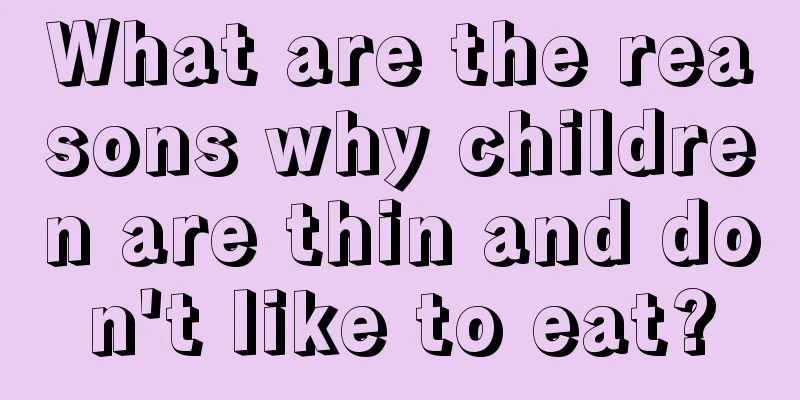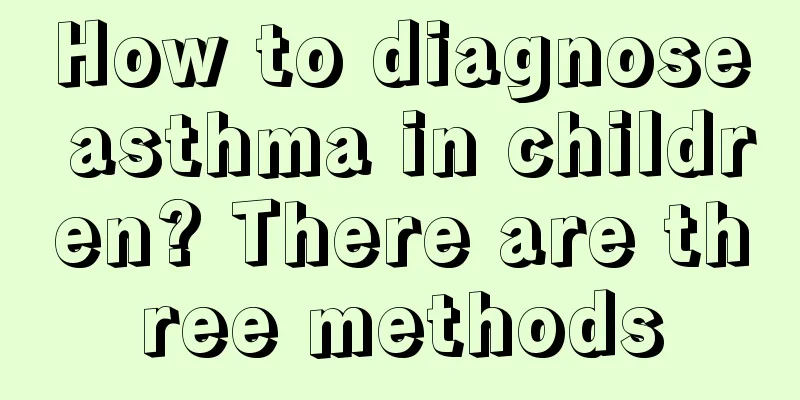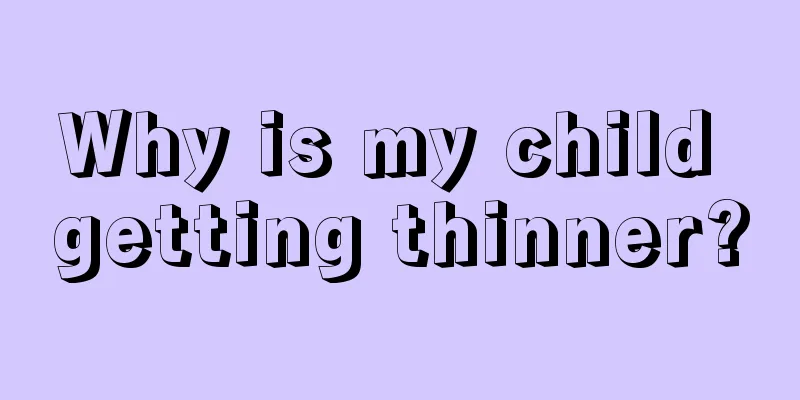What are the reasons why children are thin and don't like to eat?

|
Parents all hope that their children grow up strong and plump. They feel that only in this way can their children grow up well. Sometimes when they see other children growing chubby, parents will be very envious. So I always lament that my children are thin and don’t like to eat. There are many reasons why children are thin and don’t like to eat. Parents should find out the reasons and solve them in time, which will make their children love to eat. 1. The beginning of autonomous consciousness: Children want to be in charge of their own affairs, so they will naturally refuse to be fed by their parents. This usually happens before a child asks to dress himself or take a bath. 2. Eating too many snacks: The child's mouth is always busy and the digestive system is constantly working, which can cause gastrointestinal dysfunction. Moreover, children prefer high-calorie sweets, such as chocolate, cake, etc., which will affect the satiety center and make it excited. Children will not be hungry and will have no desire to eat. 3. Irregular eating habits: The child's three meals are irregular and the meal times are different, which disrupts the gastrointestinal digestion pattern and makes him not want to eat at mealtime. 4. Excessive attention from parents: Too much is as bad as too little. This action made the child develop a rebellious mentality and refused to eat. Parents should relax about this. 5. The food is not to your liking: The food doesn’t taste good, or the dishes are monotonous and unvarying, and the children get tired of them. 6. Poor eating environment: Distractions during eating affect the excitation center of the food center in children's brains, such as when children eat while playing, or when parents tease or scold them from time to time. 7. Slowed growth and development: The growth rate will slow down and the appetite will also be affected. This usually occurs around the age of 2. 8. Physical discomfort: Feeling unwell causes poor appetite. In addition, if too many health supplements are taken, the gastrointestinal burden will be increased, and it may also cause children to lose interest in eating. 9. Zinc deficiency affects taste: If the body lacks zinc, the taste sensitivity will be reduced, which can easily lead to loss of appetite in children. You can observe the condition of the child's tongue coating. If the tongue is flat, has small bumps on the surface, or has a tendency to shrink, then it can be determined as zinc deficiency. 10. Unbalanced Nutrition: Feeding children too much meat, eggs and dairy products can damage their stomachs and intestines, leading to indigestion. 11. Others: Not enough exercise, slow metabolism; staying up late, lack of sleep, overwork, etc. |
<<: What to do if your child has no patience
>>: What to do if your child has a bad temper
Recommend
The baby sweats easily
Many parents will find that their babies sweat ve...
What to eat when a child has a cough
From the perspective of traditional Chinese medic...
Where should I use moxibustion for children with cold and cough
If a child has symptoms of a cold and cough, you ...
What are the symptoms of lupus nephritis in children?
The issue of lupus nephritis in children is an is...
Prevention of febrile seizures in children
The phenomenon of high fever convulsions in child...
When is the vaccination schedule for children?
As the saying goes, it is better to be safe than ...
Early symptoms of convulsions in children
Unlike adults, children's organs are not full...
How to treat sweaty baby feet
Some new mothers will find that their babies swea...
Causes of abdominal lymph nodes in children
Children's health needs a lot of attention. M...
Baby Nutrition Porridge Recipe Introduction
Many parents are confused about what kind of food...
Can a three-year-old baby eat crabs?
Crab is a very nutritious food. Many people like ...
Memory training games for kids
Nowadays, almost every family has only one child,...
How old can children eat?
When children are young, they need to be fed by t...
What should I do if my baby has a lot of eye secretions?
The weather in summer is the hottest in the year....
When does the baby's fontanelle close?
The early or late closure of the fontanelle is an...









